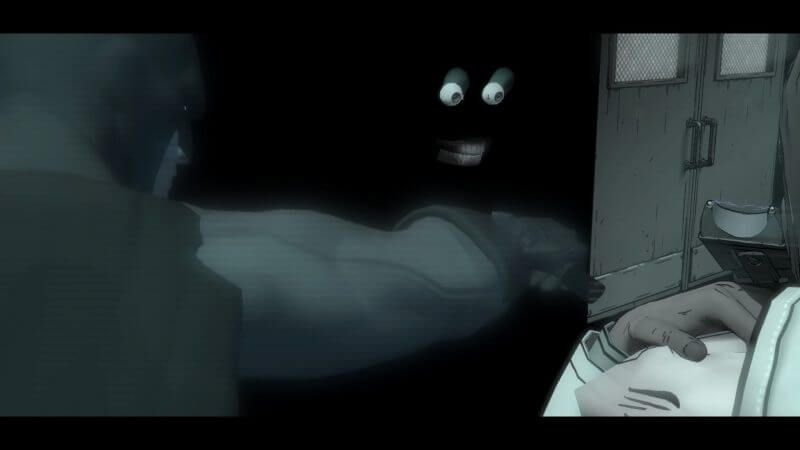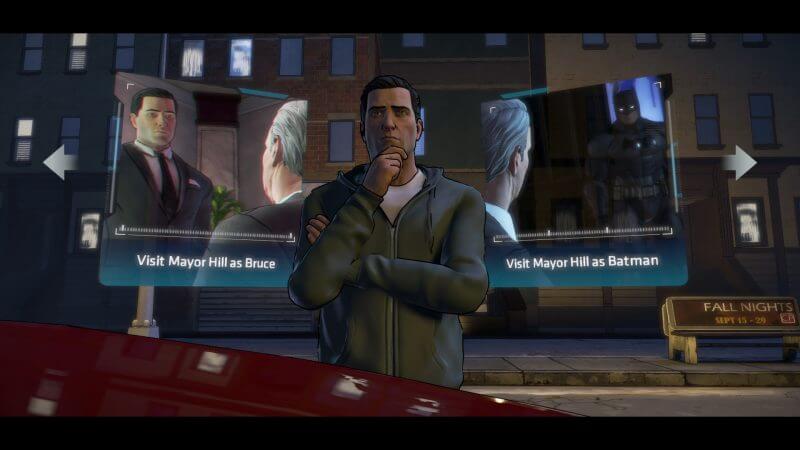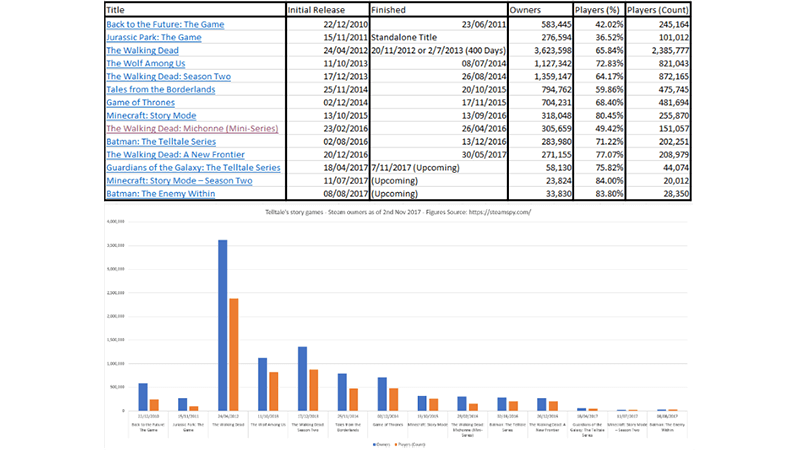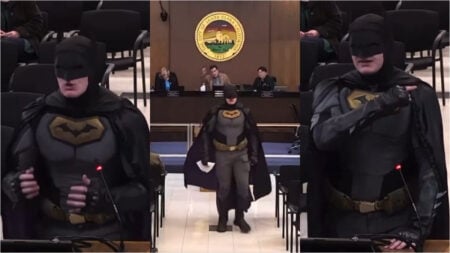When you’ve faced the same problems with something for a long period of times, sometimes the best course of action is a fresh start. Telltale Games recently announced that they would be laying off a fourth of their staff members, one of the biggest gaming industry layoffs in recent memory. And while you never like seeing people lose their jobs, the move might be the most productive one that Telltale has made in years.
Over the past decade, Telltale Games has made its name off narrative-driven games, from classics like Sam and Max to the 2012 Game of the Year Telltale’s The Walking Dead. Yet while much of their story content has continued to delivery at least affable results, the company and its games have suffered criticism regarding persistent issues that continue to plague their games, as well as the direction behind them
Chief among the list of gameplay issues errors are bugs, framerate issues, and a lot of other things relevant to the engine that Telltale uses.
Bugs and small things are going to happen in any game, it’s simply a part of the trade-off that comes with creating a high-quality experience. But not only are these the same type of issues that happen in 10-year-old and brand new games alike, Telltale Games aren’t technical masterpieces either.
The majority of their game’s gameplay revolves around walking from one point to another, either activating a cutscene, interactive with an object, or a QuickTime event. Nothing to the scale of riding around the world of Grand Theft Auto V, which contains thousands of moving assets, all while the player is controlling the game in real time.
While they do have plenty of branching narratives, there’s a big difference in sorting out varying text decisions in their games – which have smaller file sizes than an A.I controlled enemy hellicopter – than there is with anothe narrative adventure in Heavy Rain, which has different endings based on your decisions. Telltale has always touted that the choices players make will affect the outcome, but it’s really more linear than that, affecting small scenes on the way to the final set pieces, all of which contain the same assets and locations and usually just an A or B choice.
Alongside a fixed narrative, Telltale games are more graphically comparable to watercolors than they are to the graphic detail seen in most video games in the current climate. Powerful PCs and Consoles allow for lifelike graphics and textures in games like Horizon Zero Dawn. But games like The Wolf Among Us feature cell-shaded art. While the comic book look is charming and beautiful in its own way, a lot of the scenery and background aren’t nearly as immersive or appealing, as some simply look out of focus in comparison to the foreground characters. Despite the low resolution, frame rate issues still run rampant, causing games to skip along or even freeze altogether.
Sound issues occur rather often too, with plenty of instances of Batman: The Telltale Series or Telltale’s Game of Thrones lacking background audio or even voice-overs. Couple these with incorrect save imports, games not automatically downloading the next episode – a problem I currently face with Minecraft: Story Mode Season 2 Episode 4 – and unmet release dates, and you can see why fans have been worried about Telltale.
That is, of course, the fans that have stayed with the franchise over the past couple of years. The chart below details just how drastic of a drop off the Telltale games have seen since finding their footing with Sam and Max. (Charts courtesy of Reddit)
As you can see, no game comes anywhere close to Telltale’s The Walking Dead, which has an owner base of over three and a half million and a player count close to three million. The second closest title in the franchise is The Walking Dead Season Two, which came out about a year later. In comparison to its predecessor, the second season only managed about half of the owner base and player count. Granted these numbers are all since each games release date up to now, so The Walking Dead’s first season has the advantage of time. Even so, the graph shows a steady decline, one which supports that fans are abandoning the franchise due to the issues above.
Direction wise, one of the biggest issues Telltale has had in the past couple year since finding its success lies in the fact that they seem to be choosing quantity over quality. Since 2012, there have been 13 different Telltale games released across multiple series – including multiple seasons for some series – released for all platforms.
Like the Assassin’s Creed series, this result in fans wondering why they wouldn’t choose to focus their workforce on developing and perfecting one game over a longer period of time, instead of stretching them amongst the multiple games going on at once. Stretching them thin might not be the right word for it though actually, as Telltale employed around 386 employees (According to LinkedIn) before the 25 percent staff cut. To put that in perspective, Naughty Dog studios (Uncharted, Last of Us), employees about 200 workers. That means Naughty Dog still has a smaller staff than Telltale, even after layoffs, despite working on two games that take considerably more time, resources, and manpower to make than even most normal games.
Again no one wants to see an employee who needs to support themselves and their family get laid off, but if their talents are being put to good use, its a waste for both. Before the layoffs, the idea that Telltale wasn’t a productive work environment for some was little more than hearsay, with the biggest supporting argument of that fact being when four veterans at the narrative branch of the company (Dennis Lenart, Nick Herman, Pierre Shorette, and Adam Sarasohn) jumped to Ubisoft together earlier this year, all at the same time. But now it seems like some of the rumors of unhappiness amongst the staff would make sense, be it based on how their talents were being used or even Telltales directions as a whole.
But I for one am optimistic about the future of the company, as its (relatively) new CEO Pete Hawley addressed the layoffs stating:
“Our industry has shifted in tremendous ways over the past few years,” said Hawley. “The realities of the environment we face moving forward demand we evolve, as well, reorienting our organization with a focus on delivering fewer, better games with a smaller team.”
He went on to thank those affected for the work they have put in, stating that it wasn’t an easy decision to make. While there is no telling what the former Zynga CEO will keep and what he will tear down at Telltale during its restructuring, it’s still more promising than facing the same issues that we’ve seen in each series for the past couple of years. Here is to hoping the company can find the same success it did just a few short years ago with Telltale’s The Walking Dead in 2012.











